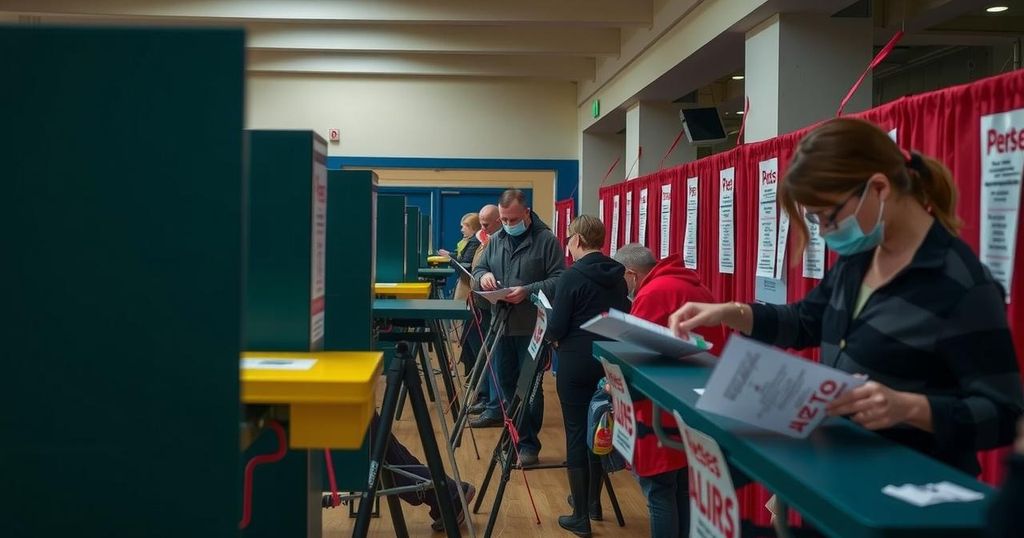Ireland Engages in Tight Election Amid Housing Crisis and Rising Costs

Ireland’s tight election sees centre-right incumbents Fine Gael and Fianna Fail in close competition with the leftist-nationalist Sinn Fein, with polling showing each hovering around 20 percent. The housing crisis and cost of living issues are central themes as voters cast their ballots amid public frustration over the government’s failure to address these concerns adequately. Counting of votes will start across the country on Saturday, potentially delaying final results for several days.
Ireland is currently experiencing a closely contested election, with the centre-right coalition parties, Fine Gael and Fianna Fail, vying for votes against the leftist-nationalist party, Sinn Fein. Voter turnout commenced on Friday, guided by polling data indicating that all three parties are polling around 20 percent support. This election marks a significant moment for Irish politics as Fine Gael and Fianna Fail formed a coalition government for the first time after the inconclusive election in 2020, following Sinn Fein’s performance as the popular vote leader.
The coalition partners, Fine Gael and Fianna Fail, share similar economic and social policy perspectives, which led to their historical pact after refusing to partner with Sinn Fein, a party known for its previous connections to the Irish Republican Army. The current Prime Minister, Simon Harris of Fine Gael, initiated the election on November 8, promoting a substantial fiscal agenda that includes tax cuts and spending proposals bolstered by a substantial budget surplus. While Fine Gael initially led polling figures, the party’s popularity waned following a viral incident involving Harris’s interaction with an agitated care worker.
Sinn Fein had dominated public opinion polls throughout 2022 and 2023 with approval ratings exceeding 30 percent, but their support weakened due to growing dissatisfaction among voters regarding the party’s immigration policies. Central to this election campaign are critical cost-of-living concerns stemming from an acute housing shortage, leading to record-high rents and property prices. Despite possessing some of the most robust public finances in Europe resulting from a record corporate tax revenue influx from U.S. multinationals, the government faces significant public backlash regarding its management of housing and public services, particularly the failure to build enough new homes during the Celtic Tiger boom years. As counting of the votes begins on Saturday across Ireland’s 43 multiseat constituencies, it is anticipated that the final election results may take several days to be announced due to the intricacies of the proportional representation counting system.
The political landscape in Ireland has been significantly influenced by a severe housing crisis and pressing cost of living concerns. The ongoing election pits the historically rival centre-right parties against Sinn Fein, which has gained popularity as a nationalist leftist party. The backdrop of public dissatisfaction over the government’s handling of housing and public services reflects broader frustrations, particularly in light of previous economic booms and a rapidly inflating housing market. The dynamics of this election are indicative of changing voter sentiment and the challenges currently facing Ireland’s political system.
In conclusion, Ireland’s election is a pivotal moment reflecting the nation’s unresolved housing crisis and dissatisfaction with government services. The tight competition between Fine Gael, Fianna Fail, and Sinn Fein encapsulates a political landscape deeply affected by socio-economic issues, particularly escalating living costs and housing shortages. The complexities surrounding the voting process and the potential for prolonged counting highlight the intricate nature of Ireland’s political representation.
Original Source: www.aljazeera.com






